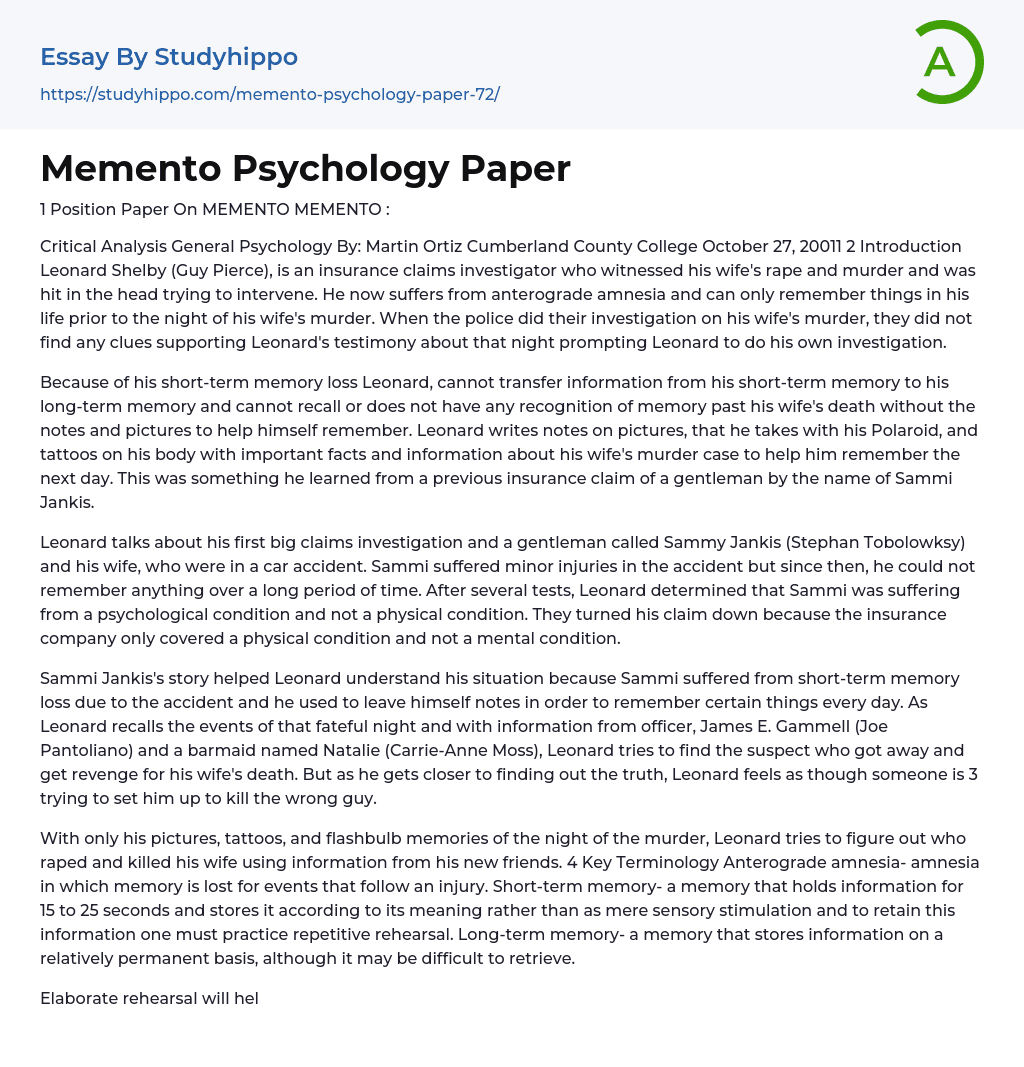Introduction
Leonard Shelby, an insurance claims investigator, suffers from anterograde amnesia after being injured during his wife's rape and murder. This condition prevents him from remembering anything that happened after the incident. Despite lack of official support, Leonard takes it upon himself to investigate the case using notes, Polaroid pictures, and tattoos as aids for his short-term memory loss.
In a previous insurance claim, Leonard learned about Sammi Jankis, a man who had a car accident and suffered memory loss. Despite only minor injuries, Sammi couldn't remember anything for long periods of time. Evaluating the case, Leonard concluded that Sammi's condition was psychological rather than physical.
The insurance company rejected his claim because only physical conditions were covered, not mental conditions. Leonard found solace in Sammi Jankis's story as they both suffered from short-
...term memory loss caused by accidents. Sammi used notes to remember things every day. Leonard now recalls the events of the tragic night with help from officer James E. Gammell and barmaid Natalie. He seeks the suspect who escaped and to avenge his wife's death. However, as Leonard nears the truth, he suspects someone is trying to deceive him into killing the wrong person.
Leonard endeavors to unravel the enigma of his wife's sexual assault and murder solely relying on his personal photographs, tattoos, and fleeting recollections from that fateful evening. He depends on input from his newfound companions to assemble the jigsaw puzzle.
Important Terminology
Anterograde amnesia – a form of memory loss for events occurring after an injury. Short-term memory – a type of memory retaining information for a brief period of 15 to 25 seconds, processing it based on meaning rather than sensory stimulation alone.
To preserve this information, repetitive rehearsal is necessary. Long-term memory – a type of memory permanently storing information, although retrieval may pose challenges.
Elaborate rehearsal aids in transferring information to long-term memory. Recall involves retrieving specific information from memory, while recognition involves determining if a stimulus has been encountered before or identifying it from a list. Flashbulb memories are exceptionally vivid recollections of significant or unexpected events, almost like snapshots.
- Abnormal Psychology essays
- Social Psychology essays
- Developmental Psychology essays
- Jean Piaget essays
- Positive Psychology essays
- Classical Conditioning essays
- Counseling essays
- Psychoanalysis essays
- Educational Psychology essays
- Behaviorism essays
- Authority essays
- Operant Conditioning essays
- Maslow's Hierarchy Of Needs essays
- Mental Health essays
- Personality Psychology essays
- Psychotherapy essays
- Family Therapy essays
- Stanford Prison Experiment essays
- Abraham Maslow essays
- Erik Erikson essays
- Cognitive Psychology essays
- Sigmund Freud essays
- Attachment Theory essays
- Supersize Me essays
- Individual essays
- Infant essays
- Childhood essays
- Adolescence essays
- Growth Mindset essays
- Is Google Making Us Stupid essays
- Childhood Memory essays
- Positive Attitude essays
- Reinforcement essays
- Archetype essays
- Maturity essays
- Deception essays
- Certainty essays
- Conformity essays
- Aggression essays
- Behavior essays
- Human Behavior essays
- Obedience essays
- Adult essays
- Procrastination essays
- Morality essays
- Altruism essays
- Human Sexuality essays
- Role Model essays
- Perseverance essays
- Expressive essays




